Covid: Push for Christmas Day jabs as thousands spend the holiday in isolation
- Published
Here are five things you need to know about the coronavirus pandemic this Christmas morning.
1. Push for vaccinations on Christmas Day
Thousands of people in England will be given first, second or booster jabs on Christmas Day as the NHS continues its push to increase vaccinations in response to the Omicron variant. Eight locations, including London, Manchester, Swindon and Eastbourne, will be offering appointments, with volunteers giving up part of their time on Christmas Day. Most centres will be closed until at least Monday, however. More than 32 million people - about 60% of adults - have now received booster or third doses, with a record number of vaccinations given in the last seven days. But the new, highly transmissible variant has seen confirmed cases reach a new daily high of 122,816.
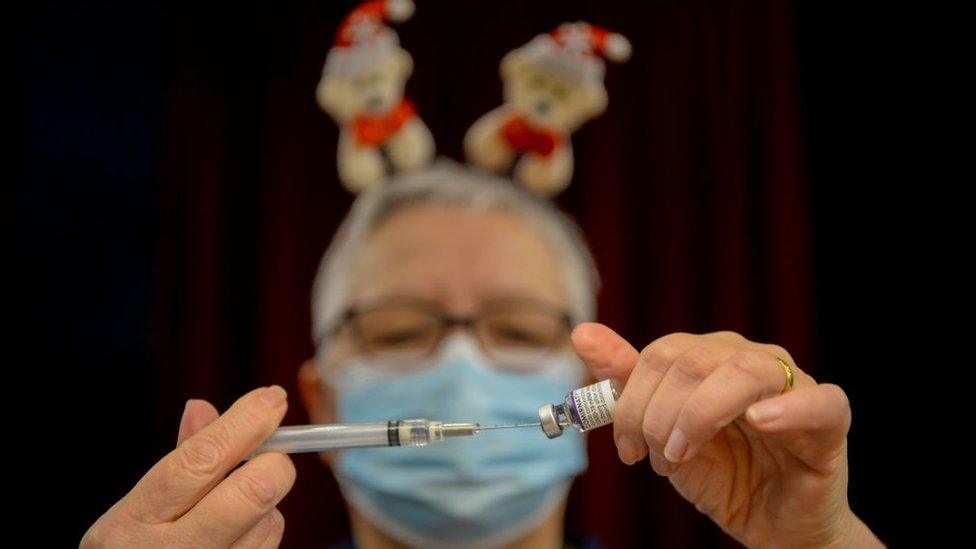

2. Thousands spending Christmas in isolation
"When the kids are opening their presents in the morning, I'm going to FaceTime them," says grandmother Mandy Connors, from Aberystwyth. She is one of many thousands of people "gutted" to find they have to spend Christmas apart from loved ones and in self-isolation after a positive Covid test. Richard Hawkins is isolating alone in his Manchester flat - but he says neighbours have helped shop for him and friends have offered to cook him Christmas dinner. One NHS worker said family members had judged it was "too risky" to celebrate Christmas with him, even though he has had three vaccine doses and wears protective equipment at work in intensive care. Darren Beacham, Cardiff branch president of the GMB union, said: "They are just so scared".
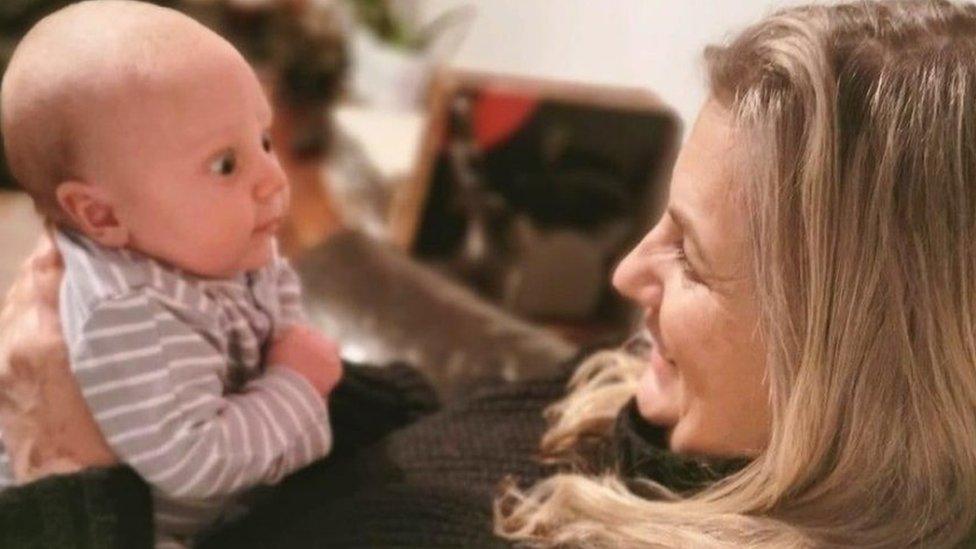

3. The Covid symptom that could ruin Christmas dinner
For some, Covid means losing your senses of taste and smell - but others have found it leaves them strangely distorted instead, leaving food smelling of foul water or chemical scents and tasting disgusting. Kate McHenry from Widnes has suffered from parosmia since March 2020, losing two stone (12.7kg) and relying on nutrient shakes. She's had a trial run eating a roast in preparation for Christmas dinner and says leaving out onions from the gravy - a common parosmia trigger - is key. Jess Boyes from Halifax says: "I was so depressed last year because Christmas is obviously about stuffing your face with delicious food and chocolate but everything to me smelt like wet dog." She says things have improved now but the first few bites of a meal are a struggle.
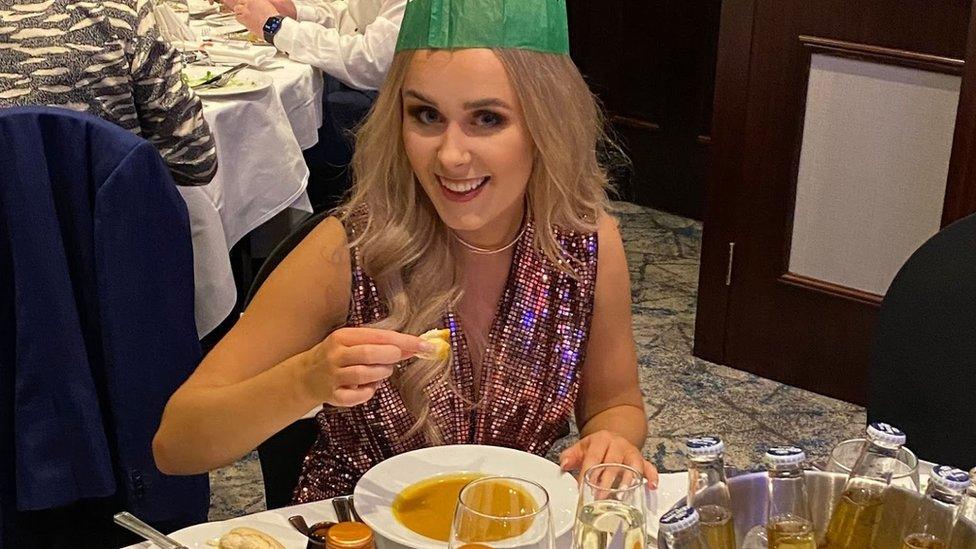

4. Churches should stay open, says Catholic leader
As record numbers of infections raise the possibility of new restrictions, the head of the Roman Catholic Church in England and Wales has urged the government to keep churches open. Speaking before a packed Midnight Mass, Archbishop of Westminster Cardinal Vincent Nichols told the BBC he believed it had been demonstrated that churches were "not places where we spread the virus". "I think this country has shown that people can make good judgements themselves. We're at that point of saying we understand the risk," he said.
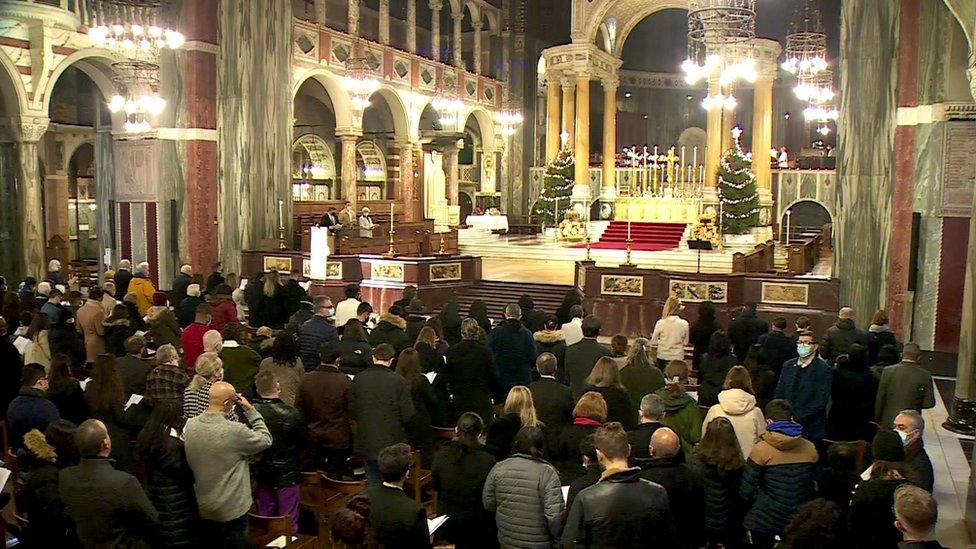

5. Kate shows surprise piano skills at Covid concert
A carol concert organised by the Duke and Duchess of Cambridge for people who supported their communities in the pandemic featured a surprise performer: Catherine herself. The duchess secretly recorded a clip of herself playing alongside the singer-songwriter Tom Walker which was shown at the Westminster Abbey event. The song by Walker, For Those Who Can't Be There, was also posted on the Kensington Palace Twitter feed. "She smashed it," said Walker. In her recorded introduction to the event, Catherine praised the "inspirational" people who have served their communities during the "bleak time" of the pandemic.
The Duchess of Cambridge surprises concert audience with piano performance

And there's more...
From Boxing Day, tougher restrictions are being introduced in Scotland, Wales and Northern Ireland. Find out what's changing here.
You can find more information, advice and guides on our coronavirus page.
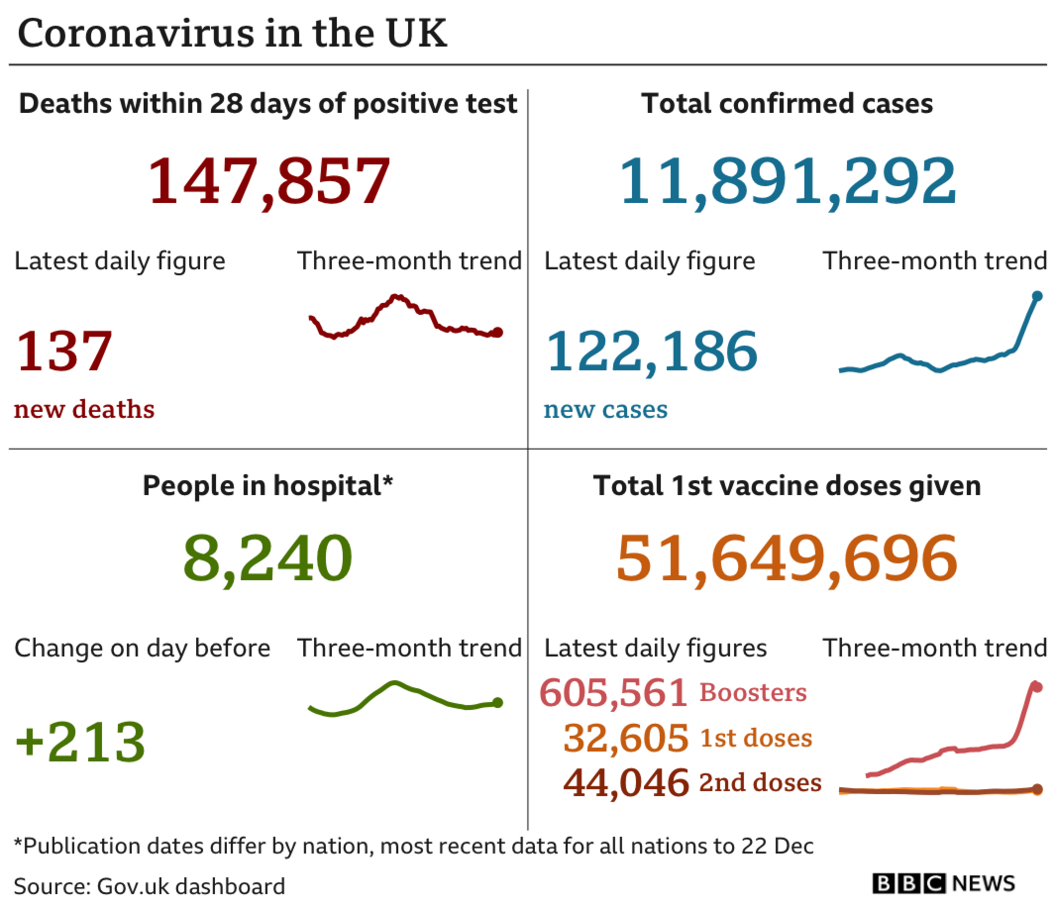


What questions do you have about coronavirus?
In some cases, your question will be published, displaying your name, age and location as you provide it, unless you state otherwise. Your contact details will never be published. Please ensure you have read our terms & conditions and privacy policy.
Use this form to ask your question:
If you are reading this page and can't see the form you will need to visit the mobile version of the BBC website to submit your question or send them via email to YourQuestions@bbc.co.uk, external. Please include your name, age and location with any question you send in.

FESTIVE FAVOURITES: Listen to these beautiful carols for a joyous start to the holidays
CHRISTMAS HAS ARRIVED AT THE REPAIR SHOP: Four beloved festive treasures are repaired
